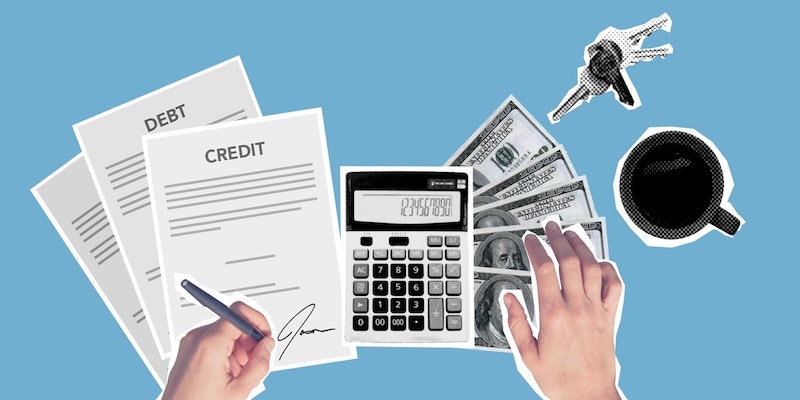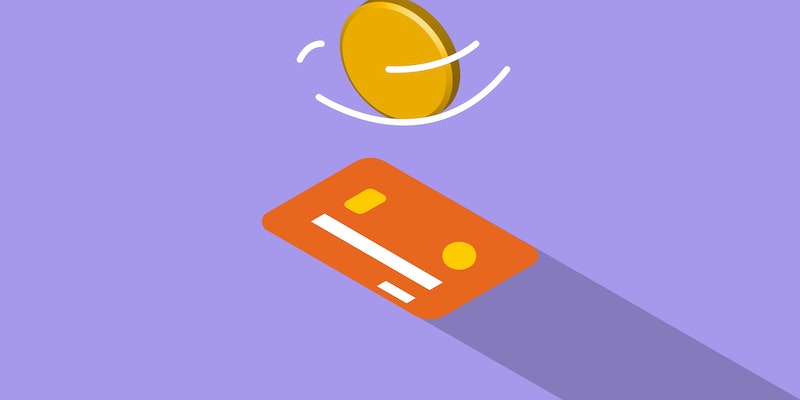2023 Monetary Guide for France Travel: Spending and Payment Tips
Triston Martin
Oct 24, 2023
France was one of the first nations to embrace the euro in 1999. You can use your Mastercard or Visa card practically anywhere, from discovering Paris' Eiffel Tower to relaxing on the French Riviera. Take a credit card on your trip to avoid costs and earn 2x miles on all transactions.
Some shops may not take credit card purchases under a certain threshold, so it's smart to have some Euro on hand. There is no shortage of automated teller machines in the country's major urban centers, but those venturing out into rural France should come prepared. Learn more about your trip to France in this France travel guide.
Which Is Better: A Debit, A Credit, or A Travel Card?
Many stores and businesses accept credit and debit cards today. Discover and American Express are accepted by fewer merchants than Visa and Mastercard. Some stores need a certain amount to be spent before accepting payment, like 10 euros. Contactless payments, on the other hand, allow you to get away with spending as little as a few euros.
In order to stretch your money as far as possible, you should bring a variety of different forms of travel currency but with some France travel restrictions. Credit cards are useful for large purchases, but debit cards or prepaid travel cards are better for little transactions or cash withdrawals.
It could take a while for your bank or lender to mail a new card, so carry multiple ways to access your vacation funds.
Which Credit Card Companies Do the French Accept?
There are no France travel restrictions, and both Visa and Mastercard are commonly accepted. American Express users may also have more success finding merchants who take their cards than their Discover card counterparts.
The high cost of using a credit card abroad is a rude awakening that many tourists to foreign countries have to face. Exchange rates and other charges associated with transacting in a foreign currency are major contributors.
Visa - Accepted by Merchants and ATMs
Mastercard - Accepted by Merchants and ATMs
American Express - Merchant acceptance is mediocre, but ATM acceptance is high.
Discover - Merchants are not accepted. However, ATMs are somewhat accepted.
Debit Card
Debit cards, which feature a chip and PIN for added security and direct access to your own funds, win the gold medal for travel currency in France. Find a checking account that doesn't charge you to convert currencies or use an ATM abroad.
For example, if you have the Betterment Checking account when you travel to France, you won't have to worry about paying out of pocket for things like ATM fees or making international transactions. French banks don't tack on fees for cash withdrawals, so buying things in euros at the counter will cost you the same or less than it would at home.
Pros
- Integrating a microchip and personal identification number for added security
- Own money, available directly
- Popular in France.
Cons
- Subscriptions to an ATM
- It may be challenging to locate an ATM that is part of your banking network.
Prepaid Travel Card
The three percent currency exchange fee is avoided when using these travel cards, which permit users to add USD and set an exchange rate when converting the funds to euros. These cards allow you to save multiple currencies, which comes in useful if you plan on making purchases in the United Kingdom.
ATM costs, reload fees, card issuance fees, and inactivity fees may still apply, notwithstanding the savings on currency translation. The second card you receive after applying for any of these accounts can be used as a backup, so don't lose it.
Pros
- Maintain a variety of currencies
- Avoid unnecessary foreign exchange expenses.
Cons
- Subscriptions to an ATM
- Reloading costs
- Card issuance costs
- Charging for non-use
Using Cash

While credit cards are accepted across the board in France, street markets traditionally only accept cash. In Paris, you can get incredible bargains on items you never would have dreamed of finding in markets like Les Puces de Montreuil and Porte de Clignancourt.
Pros
Convenience
Flexibility
Cons
Higher possibility of theft
Traveler’s Checks
Traveler's checks are inconvenient and expensive. Cashing a traveler's checks requires a fee and bank lines.
Pros
Security
Acceptance
Cons
- Can be pricey due to the high entry barrier
- A dying form of international currency
Currency of France
Euros can be found in values ranging from 5 to 500 euros. Some famous French include:
- Credit Agricole
- BNP Paribas
- Groupe Credit Mutuel
- Societe Generale
- BPCE
- La Banque Postale
- AXA Banque
- Credit Cooperatif
- Banque Palatine
- Credit du Nord
Acquiring U.S. Dollars
You can get euros pretty much anywhere these days, from banks to exchange offices to airports. If you can hold out until you're in France to buy euros, and if your debit or travel card doesn't charge you a fee for making withdrawals in foreign countries, you'll obtain a far better exchange rate. Here are several options to consider if you're looking to get some local currency upon arrival.
- OFX
- American Express
- TransferWise
- Moneygram
- Ria
- Worldremit
- Travelex
Things You Need To Know About ATMs in France

In France, you may find an ATM nearly anywhere, but particularly outside of larger banks and post offices. If you can't find a human to ask for instructions, you can always use a machine, so just ask for a "banque électronique." In addition, if you use a Betterment Checking debit card abroad, you can get your annoying ATM fee refunded within 24 hours. If you plan on using an ATM in France, here is some essential stuff you should know:
- There is no ATM operator fee at a bank's ATM.
- Visa and Mastercard should work. Contact your card issuer before switching brands.
- The ATM will let you select a language of your choosing.
- The monetary units are flexible and up to your discretion.
How To Avoid Losing Your Money in France
Visiting France is often a risk-free endeavor. Use common sense and the same safety measures you would at home. When venturing out at night, stick to well-lit places and keep your possessions close at all times.
However, a money belt or inside pocket is a safer option if you're concerned about losing your cash. This is particularly true for public transportation and other venues frequented by tourists.







